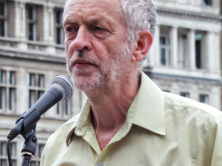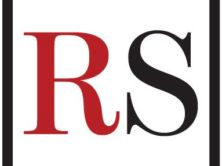The Barack Obama profile written by Dinesh D'Souza, seen above on his book cover, has generated much media controversy. Most recently, Forbes agreed to a post-publication fact check. (Credit: Screenshot detail from his personal website, DineshDSouza.com)
Forbes magazine agreed to fact check Dinesh D’Souza’s Barack Obama article post-publication “to see if an apology or a correction was warranted,” The New York Times reported.
The Forbes article was sharply criticized by the media and the White House for not being factual. As iMediaEthics earlier reported, Columbia Journalism Review’s Ryan Chittum called the cover story “smear journalism,” and Politico’s Ben Smith labeled it “weirdly sloppy in its details.” Further, White House press secretary Robert Gibbs tweeted about the story wondering why the magazine didn’t hire a fact checker.
While Forbes initially stood by freelancer D’Souza’s article, now Forbes has agreed to review the article for fact checking purposes. The Times reported that Forbes spokesperson Monie Begley said the magazine isn’t fact checking because of the White House’s complaint or as a result of the meeting Gibbs had with Forbes, but because of the media controversy following publication.
Forbes has issued one correction to the article, which addresses one of D’Souza’s comments about the BP oil spill:
“Dinesh D’Souza writes that on June 15, 2010, Obama gave a speech in response to the BP oil spill that was focused not on cleanup strategies but rather on the fact that Americans “consume more than 20% of the world’s oil but have less than 2% of the oil resources.'” D’Souza slightly misquoted the President who said, ‘2% of the world’s oil reserves.’ In addition, Obama’s speech did discuss concrete measures to investigate the oil spill and bring it under control.”
The New York Times further generalized the post-publication fact check as a mark of new media.
“In one sense, the episode was a cautionary tale for the new media age, which finds traditional media outlets like Forbes responding both to the economic imperatives of the digital age by cutting staff and to the editorial imperatives by bringing in more outside voices — Mr. D’Souza is not a staff writer — and sometimes elevating opinion above rigorous reporting.”
Also troubling is the news that D’Souza’s “citation of a transaction by the Export-Import Bank of the United States to finance offshore drilling in Brazil, a deal Mr. D’Souza believes indicates Mr. Obama is more concerned with helping countries that formerly were the domains of colonial powers, rather than Americans” has been challenged, The Times reported.
The senior vice president and chief of staff of the bank, Kevin Varney, commented Sept. 17 on the Forbes article calling out Forbes for not fact checking before publication. The New York Times verified with a bank spokesperson that indeed Varney did comment:
Varney commented that Forbes fact checker Nathan Verdi called after publication to fact check. “Is this how journalism works now?” Varney wondered. The comment can be read in the complete comments section here. Varney also posted his complete e-mail response to Verdi.
Varney highlighted two sentences in the article as incorrect. “Both statements are factually incorrect and an even cursory check by the author would have clarified the real timeline, approval process and purpose for this transaction,” Varney wrote.
The two statements in the Forbes article are:
“With Obama’s backing, the U.S. Export-Import Bank offered $2 billion in loans and guarantees to Brazil’s state-owned oil company Petrobras to finance exploration in the Santos Basin near Rio de Janeiro–not so the oil ends up in the U.S. He is funding Brazilian exploration so that the oil can stay in Brazil.”






